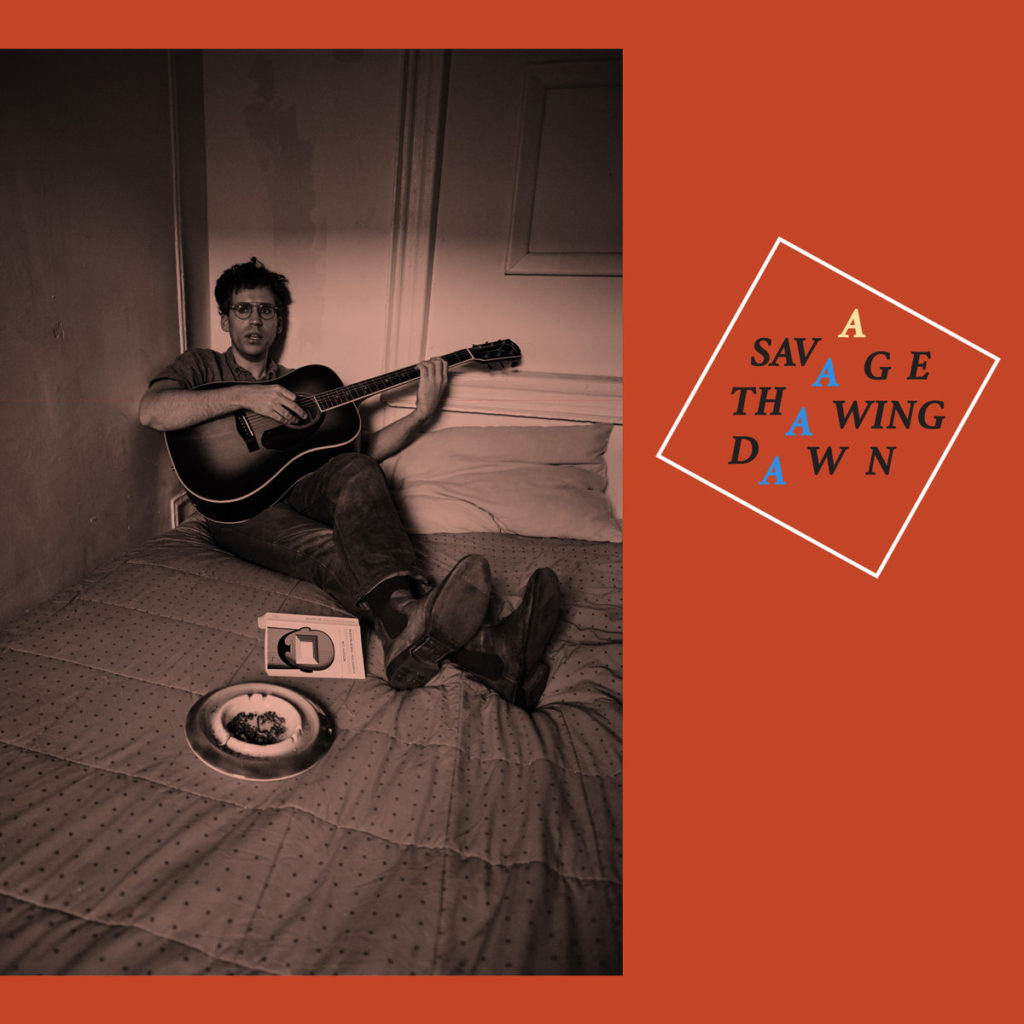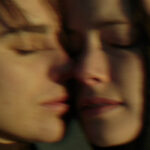Review: A. Savage—’Thawing Dawn’
Posted: by The Alt Editing Staff

Andrew Savage has, in his musical career, rarely granted his singular experiences the space to stand alone, let alone breathe. On his new, quietly released solo debut Thawing Dawn, his characteristically poetic lyrics have a spotlight cast upon them; and are more explicit, discernible and easier to pull out of context than on his past projects (Teenage Cool Kids, Fergus & Geronimo, Parquet Courts). Ambiguity, though, provides a certain universality, although somehow Savage is able to counter this concession by making an album about his experiences while still making them feel like mine, or at least similar to mine. His specificity feels real, and true. Savage is also able to negate any accusation that being explicit reduces poeticism, and this self-imposed fog he (like all of us) cast over our feelings, experiences, desires, etc, is gone; which means that in these songs, the ability to transfer meaning is also less obstructed.
Throughout this album, Savage oscillates between enjoying the waves of love, excitement and joy that he feels, and acknowledging the lack of clarity he is experiencing both because of, and in regards to, this happiness.
On “Wild, Wild, Wild Horses,” it feels like Savage is thinking out loud, trying to parse through all his thoughts and possibly clouded judgement. He knows he is in the thick of this new set of experiences, but it’s as if he has to concede all assurance of clarity or rationality if he wants to enjoy it. He writes,“Is it wrong that all I think about is you these days?/Did they drag me off, or did I gladly run?/Fast and free into your grips,” and then later, “I don’t see you/
As much as I need to, and I need to know what that means.”
https://www.youtube.com/watch?v=xXMyl3gE128
A repetitive, predictable drum beat rhythmically taps, almost as a metronome, while he works through these amorphous concerns, feelings, and expressions of joy. It seems like the drum beat keeps him both musically and emotionally on track. Layered within varying states of organ and generally diffuse, nebulous noise and feedback, the separable drum beat seems to keep the whole catharsis together and running. Eventually, the beat breaks down, and Savage finishes the song singing, “I’m not quite sure what to do,” leaving the feedback to fade out.
He also injects his romanticism with doses of realism, reminding the listener that although things may be romantic, life’s crude, weird, funny, boring, depressing moments still happen—and would be inauthentic to ignore. He’s constantly playing with reality versus dreams; romanticism versus credibility. On “Eyeballs” he sings,“Bridges in the sunset/Make a lovely silhouette/Dark and sturdy as a cheap cup of coffee.”
But at times, he lets himself run with the poeticism, especially in relating his dreams to his real experiences. On “Phantom Limbo” he sings: “There’s a thousand words I’ve framed behind my eyes/When I close my lids/There’s a childhood glimpse/As I leave the day behind/And at night when my bones surrender/To the wind blown from the sea/I’m sure that you’re the sweetest breeze that’s ever blown through me.” In a passage like this, he briefly disregards his impulse to ground his lyricism.
On “Ladies from Houston,” Savage is writing flash fiction, and the song forces us to slow down, to listen, to be immersed. He puts the music and the lyrics in conversation with one another, and alternates their verses. He sings,“Uncle Marty was troubled, at least that’s what I heard/And now he’s dead or in prison/Or just gone but not missin’/But I remember the burn mark and the speedy tattoo/And the words that he chose/And the way his lips moved to make them.”
These are his experiences, and are distinctly his. This seems like the next phase of a larger band-to-solo trend; where his experiences are not concealed by pop hooks through cow-punk fuzz (Teenage Cool Kids); countered with descriptions of aliens or accented, soulful doowop (Fergus and Geronimo); or disoriented by abrupt art-rock licks (Parquet Courts). Savage seems to be allowing his lyrical content to be not only explicit, direct, and transparent, but also for it to be centerpiece.
On the title-track closer to the album, Savage describes many evolutions. He especially describes processes that no longer evolve because of the subject’s instruction, but instead evolve naturally and without your full control. He describes the crumbling purity in religion, “Most religion is as far from faith/As the sun is from the shadows it shapes”; the evolution of one’s drinking, “Started drinking to meet strangers and folks/
Who’d listen to me, who’d nod when I spoke, but/These days when I’m thirsty I don’t mind staying home/
Drinking away the blues”; and smoking, “Started smoking to keep up with my friends/I learned to love the feeling when I’m breathing it in/But I’m a lonely lighthouse shining by the sea on a cliff/Dragging in solitude.”
While Savage sings of these gradual evolutions, the music shifts abruptly. The final shift provides only piano and Savage’s voice. He leaves us with: “Of all the pieces I’ve combined/Still the cruelest mixture yet/Is the softness of a thawing dawn/And the hardness of regret.”
The song’s clear fragments contrast the drawn-out processes he describes, altogether providing the listener with many moods, musical iterations, and symbols to latch onto with each listen. In Thawing Dawn’s ending words, and throughout the record, Savage’s tangling of romanticism with reality creates an album to connect with, explore, and enjoy more with each revisit.
Disappointing/Average/Good/Great/Phenomenal
—
Ellie Eiger | @elllieeiger










